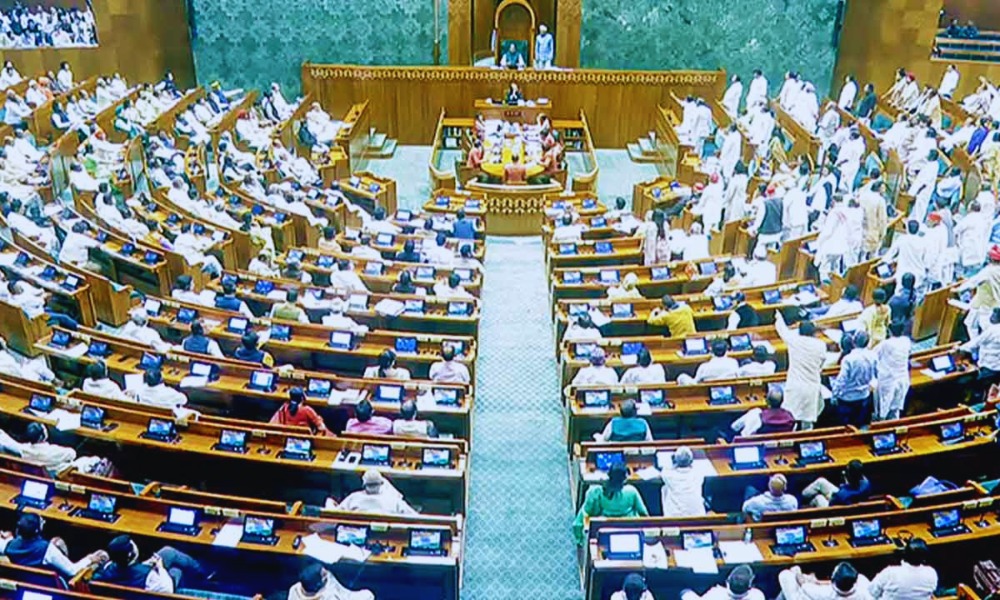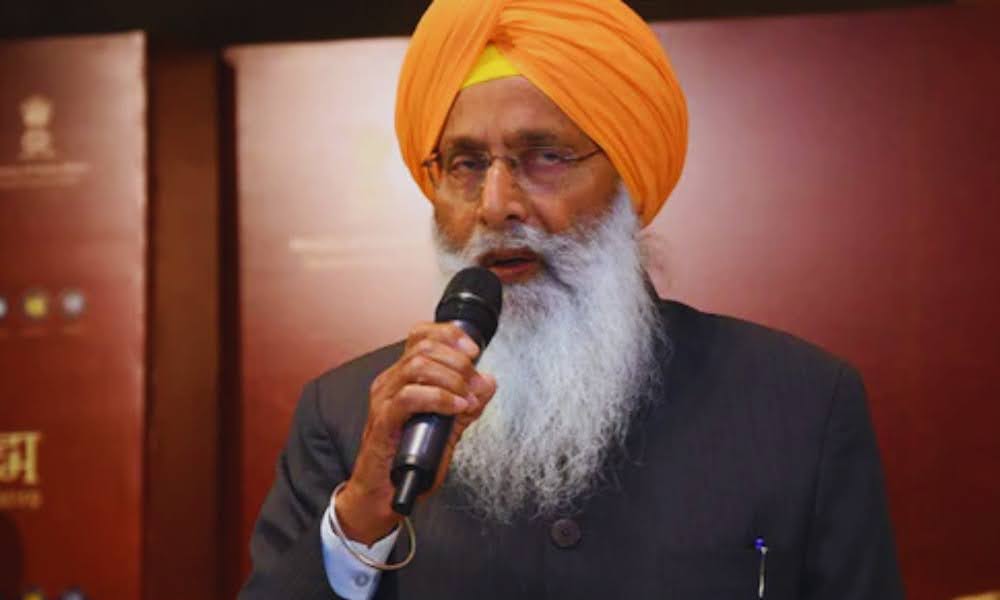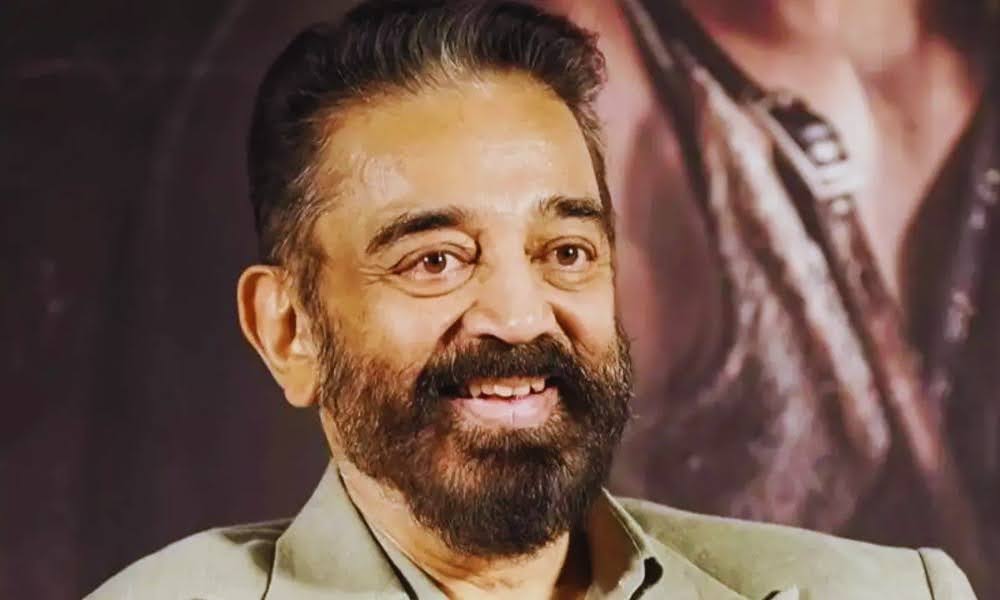Lok Sabha Passes Waqf Amendment Bill After Intense 12-Hour Debate

The Waqf Amendment Bill was passed in the Lok Sabha on April 2, with 288 votes in favor and 232 against. The debate over the bill lasted for 12 hours and extended past midnight.
The ruling Bharatiya Janata Party (BJP) successfully pushed the bill through despite strong opposition, aided by its allies, including the Telugu Desam Party (TDP).
Prior to the discussion, both the Union government and the Opposition issued a three-line whip, requiring their MPs to be present for the debate.
Opposition Criticism and Allegations
The proposed law, now renamed the Unified Waqf Management, Empowerment, Efficiency, and Development Act, has been heavily criticized by opposition parties. They argue that it infringes on both minority rights and the authority of state governments.
Congress Deputy Leader in Lok Sabha, Gaurav Gogoi, described the bill as “an attack on the basic structure of the Constitution.”
He accused the government of trying to “defame and disenfranchise minority communities and divide Indian society.” Gogoi also challenged the BJP over its lack of Muslim representation and restrictions on public prayer spaces for Muslims.
DMK’s Stand Against the Bill
On March 27, the Dravida Munnetra Kazhagam (DMK) passed a resolution in the Tamil Nadu Assembly against the bill, stating that it promotes “political interference and curtails religious freedom.” During the April 2 Lok Sabha debate, DMK members reiterated these concerns.
Key Provisions of the Bill and Muslim Concerns
The bill has sparked significant concern within the Muslim community due to two major provisions:
- Non-Muslim Representation in Waqf Boards – The amendment allows the appointment of a non-Muslim CEO and at least two non-Muslims to state Waqf boards.
- Elimination of ‘Waqf by User’ Provision – The bill grants the Union government the authority to determine whether a disputed property falls under Waqf jurisdiction, raising fears of government overreach.
Opposition parties also expressed frustration that none of their recommendations were considered by the Joint Parliamentary Committee (JPC) reviewing the bill.
Debate Moves to Rajya Sabha
The bill will now be presented in the Rajya Sabha, where an eight-hour debate slot has been scheduled.
During the April 2 session, Minister of Minority Affairs Kiren Rijiju defended the bill, asserting that “there is no place in the world safer than India for minorities” and attributing this safety to India’s secular majority.
He dismissed opposition claims that the bill is “anti-Muslim” and insisted it would benefit underprivileged Muslims.
“Crores of poor Muslims will thank PM Modi on the bill being passed,” Rijiju claimed, rejecting allegations that the bill undermines constitutional values.
Government’s Justification for the Bill
The BJP argues that the bill is aimed at improving Waqf property management. It seeks to rectify administrative shortcomings of the 1995 Act by streamlining registration processes and integrating technology into record-keeping.
Prime Minister Narendra Modi’s government maintains that the amendments will combat corruption and mismanagement while ensuring better governance of Waqf properties, which include historic mosques, shrines, graveyards, and vast tracts of land.
Opposition and Minority Organizations Push Back
However, Muslim groups fear the bill will make Waqf properties vulnerable to disputes, government control, and potential confiscation. The Congress-led opposition has labeled the bill “unconstitutional and discriminatory.”
Rahul Gandhi criticized the legislation, stating, “The bill is a weapon aimed at marginalizing Muslims and usurping their personal laws and property rights.”
He warned that while it currently targets Muslims, it sets a precedent that could be used against other communities in the future.
AIMPLB and Legal Challenges
The All India Muslim Personal Law Board (AIMPLB) has vehemently opposed the bill, calling it “discriminatory, communally motivated, and a blatant infringement on constitutional rights.”
The organization announced plans to challenge the bill in court and mobilize public protests if it becomes law.
Kamal Farooqui, an AIMPLB official, questioned the government’s intentions: “It is okay to reserve two posts in the Waqf board for non-Muslims, but does it mean that Muslims will get similar reservations in Hindu temple boards?”
Concerns Over Waqf Property Ownership Rules
One of the most contentious aspects of the bill is its impact on ownership rules. Many Waqf properties, including mosques and shrines, were donated centuries ago without formal documentation.
The amendment could potentially lead to disputes and government claims over these properties.
Muslim leaders fear that, under the current political climate, Waqf properties may be more susceptible to takeovers and legal challenges.
This concern is heightened as right-wing groups continue to lay claims to historic mosques, arguing they were built on Hindu temple sites.
Larger Implications for India’s Muslim Community
Muslims make up 14% of India’s 1.4 billion population, yet they remain one of the most economically disadvantaged communities.
The Sachar Committee report (2006) had recommended reforms to better utilize Waqf assets for the welfare of the Muslim community. Critics argue that instead of empowering Waqf boards, the new bill reduces their autonomy and increases government control.
What’s Next?
With the bill now in the Rajya Sabha, its fate depends on further debates and potential amendments. If passed, it will be sent to President Droupadi Murmu for approval before becoming law.
As discussions continue, India’s Waqf properties stand at a crossroads, with concerns over minority rights, government control, and religious freedom fueling an intense national debate.









